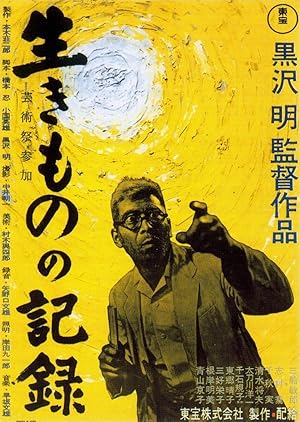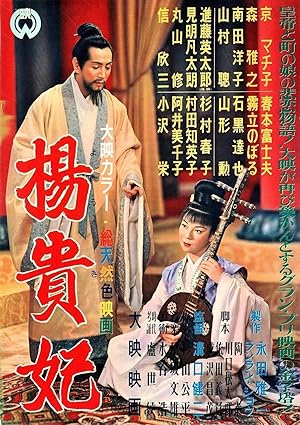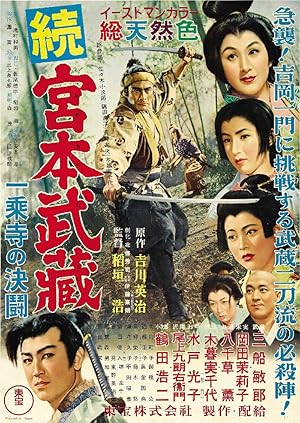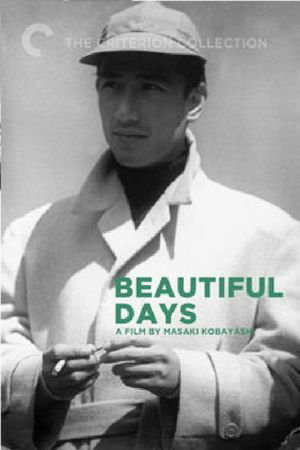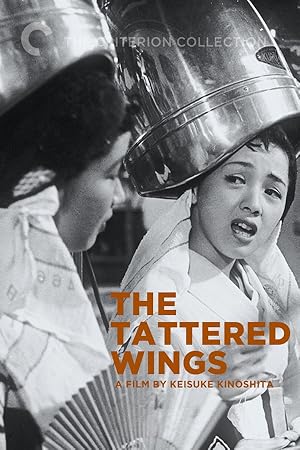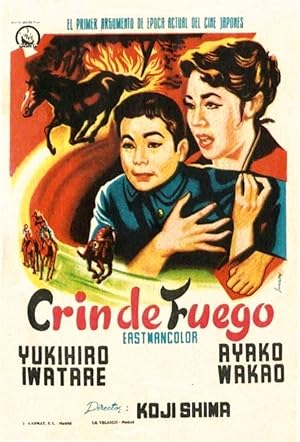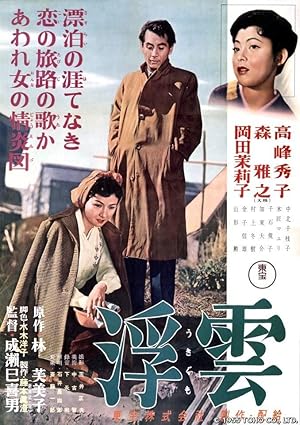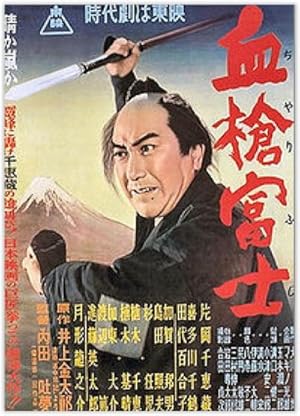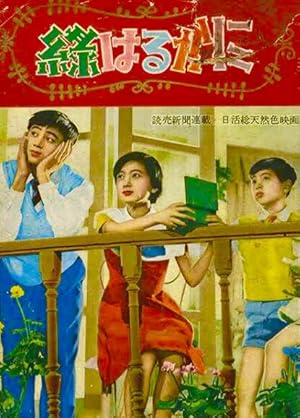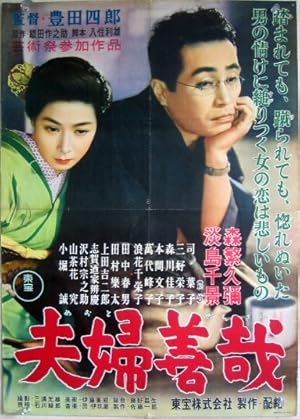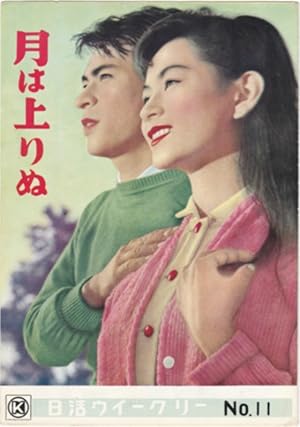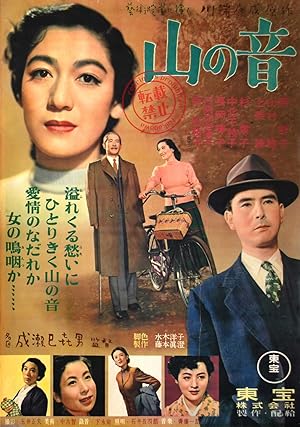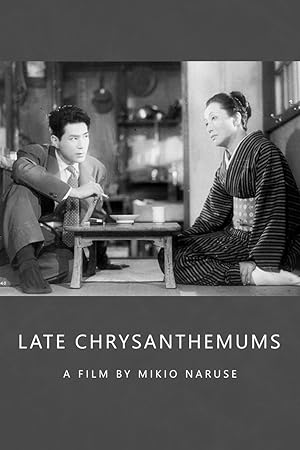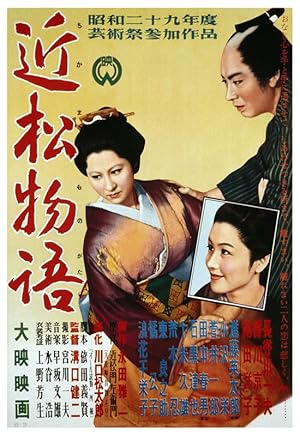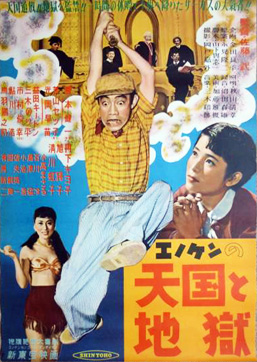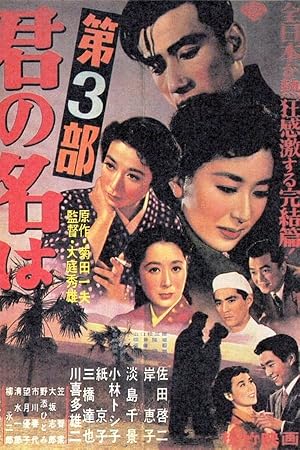Top Ja-Language Movies
You’re now browsing page 198, where our journey through Ja-language movies continues. If you’ve already encountered some outstanding titles on previous pages, now is the perfect time to dig deeper, uncovering more cinematic gems that highlight the richness of ja-language storytelling. Keep exploring and enjoy the ride!
I Live in Fear (1955)
1
Kiichi Nakajima, an elderly foundry owner, is convinced that Japan will be affected by an imminent nuclear war, and resolves to move his family to safety in Brazil. His family decides to have him ruled incompetent and Dr. Harada, a Domestic Court counselor, attempts to arbitrate.
Princess Yang Kwei Fei (1955)
0
In eighth century China, the Emperor is grieving over the death of his wife. The Yang family wants to provide the Emperor with a consort so that they may consolidate their influence over the court. General An Lushan finds a distant relative working in their kitchen whom they groom to present to the Emperor. The Emperor falls in love with her and she becomes the Princess Yang Kwei-fei. The Yangs are then appointed important ministers, though An Lushan is not given the court position he covets. The ministers misuse their power so much that there is a popular revolt against the Yangs, fueled by An Lushan.
Samurai II: Duel at Ichijoji Temple (1955)
0
After years on the road establishing his reputation as Japan's greatest fencer, Takezo returns to Kyoto. Otsu waits for him, yet he has come not for her but to challenge the leader of the region's finest school of fencing. To prove his valor and skill, he walks deliberately into ambushes set up by the school's followers. While Otsu waits, Akemi also seeks him, expressing her desires directly. Meanwhile, Takezo is observed by Sasaki Kojiro, a brilliant young fighter, confident he can dethrone Takezo. After leaving Kyoto in triumph, Takezo declares his love for Otsu, but in a way that dishonors her and shames him. Once again, he leaves alone.
Beautiful Days (1955)
0
Masaki Kobayashi directs this romantic drama concerning a family of florists.
The Tattered Wings (1955)
0
A young widow, made world weary by her abusive, neglectful husband, finds herself in a minor scandal when she's seen with her intense, no-nonsense childhood sweetheart.
The Phantom Horse (1955)
0
Following the tragic death of his father, a young boy's family trains his horse to compete in the local derby.
Floating Clouds (1955)
1
A married Japanese forester during WWII is sent to Indochina to manage forests. He meets a young Japanese typist and promises to leave his wife. He doesn't and after the war, she turns up and the affair resumes.
Bloody Spear at Mount Fuji (1955)
0
Tragicomic road movie set during the Edo period. It follows a samurai, his two servants – including spear-carrier Genpachi – and the various people they meet on their journey, including a policeman in pursuit of a thief, a young child and a woman who is to be sold into prostitution.
The Green Music Box (1955)
0
Ruriko's father is a well known scientist who's involved in secret research that even his family doesn't know about. Ever since he moved up to the research laboratory in Hokkaido, Ruriko hasn't heard from him. The only thing that reminded her of his warmth was the green music box that he’d left behind for her. She longed to reunite with her father. The little box played music that lifted her spirits, to a place where everything was perfect.
Marital Relations (1955)
0
The story of a couple, a spoiled son and a down-to-earth girl, in Osaka in the early Showa era. The film won the prestigious Blue Ribbon awards for best director, best actor (Morishige) and best actress (Awashima), and the Mainichi Concours award for best actor and best screenplay (Yasumi Toshio). It ranked second (after Naruse Mikio’s Ukigumo) on the Kinema Junpō top ten films for the year.
Forever a Woman (1955)
0
Fumiko, mother of two children and wife of an unfaithful man, shares her family life with her budding vocation as a poet. The beginning of her successful literary career coincides with her divorce and her breast cancer diagnosis. In the last stage of her life, she meets a young journalist from Tokyo who wants to write a story on her life.
The Moon Has Risen (1955)
0
Mokichi is the widowed father of three daughters, with whom he lives on the premises of a temple since the war. All three daughters become involved in some sort of complicated relationships.
Seven Samurai (1954)
5
A samurai answers a village's request for protection after he falls on hard times. The town needs protection from bandits, so the samurai gathers six others to help him teach the people how to defend themselves, and the villagers provide the soldiers with food.
Sound of the Mountain (1954)
0
An ingratiating bride develops warm ties to her father-in-law while her cold husband blithely slights her for another woman.
Late Chrysanthemums (1954)
0
With delicate, unobtrusive strokes, Naruse evokes both the humor and bitterness of his characters’ dilemmas, in this bleak, compelling poignant portrait of a quartet of aging geishas contemplating their troubles with men and money.
The Crucified Lovers (1954)
0
When the wife of a 17th century Kyoto scroll-maker is falsely accused of having an affair with his best employee, the pair flee the city and find themselves falling for one another.
Enomoto's Heaven and Hell (1954)
0
Keita, after his death, was taken to the court of heaven as Defendant No. 1361, where his past was projected. He was formerly a favorite of the Meriken Circus troupe, yet he sinned by exposing a certain woman. During the screening, he realizes what he has done, and fate gives him a chance to redeem his sins.
Always in My Heart Part 3 (1954)
0
Machiko and Haruki’s drama continues. Machiko is not allowed to see Haruki. They finally meet again, but Haruki departs to Europe.
